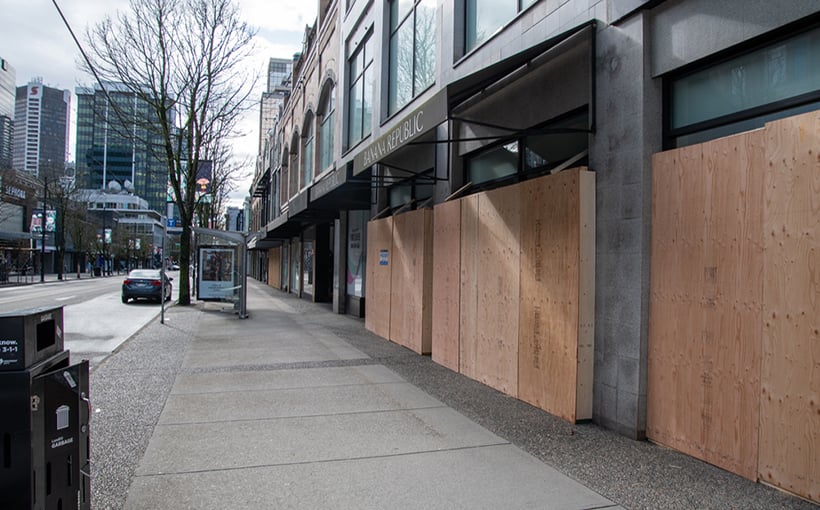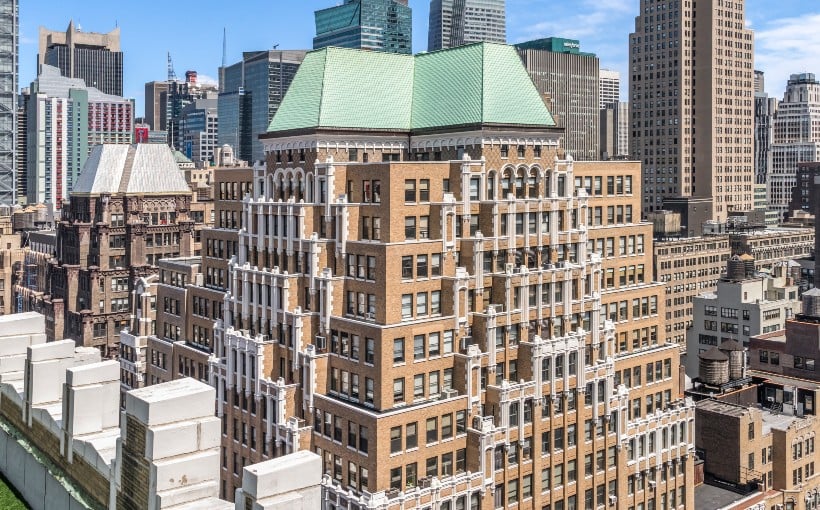Exploring the Truth Behind Negative Headlines in the Office Sector
This article is part of a series that delves into the reality behind alarming headlines. The first two pieces, titled “CRE Experts Reject Doom-and-Gloom Predictions for Offices” and “Experts: Upgrades are Key to Generating Demand for Office Spaces”, shed light on this topic.
A quick Google search of “real estate doom loop” will yield numerous results with similar themes. This theory suggests that remote work and increasing office vacancies pose a threat to cities and financial institutions, potentially leading to an economic apocalypse.
However, experts in the field argue that these claims are exaggerated. While it’s true that there has been a shift towards remote work and some impact on office spaces, it’s not as dire as portrayed by sensational headlines.
The Origin of “Doom Loop”
The concept was first introduced by Stijn Van Nieuwerburgh from Columbia University’s Graduate School of Business in his paper published by National Bureau of Economic Research (NBER). He predicted that remote or hybrid work would result in higher vacancies, fewer leases being signed or renewed, empty business districts with vacant retail spaces – essentially creating ghost towns out of once bustling areas.
But according to Scott Morse from Citadel Partners , while this theory makes for interesting reading material,it does not accurately reflect what is happening with offices today. The sector may be experiencing some challenges but it certainly isn’t facing total collapse.
Employees Are Returning To Work
Contrary to popular belief during 2022-23 when companies were allowing employees more flexibility due to COVID-19 concerns; now they have started demanding their staff return back-to-office full time or risk losing their jobs . Even so,the traditional five-day week at an office might become obsolete according CNBC .
Aarica Mims from KDC believes company culture and face-to-face collaboration play crucial rolesin success which requires bringing employees together physically even if only three days a week. The initial pushback from employees seems to be subsiding as well, with many realizing the drawbacks of remote work such as feeling isolated and lonely.
Location Matters
David Martin from Terra Group points out that while the “doom loop” may hold true for major East and West Coast cities, it’s not necessarily applicable everywhere. He predicts South Florida will continue to perform well in terms of office spaces due to an influx of out-of-state companies and corporations requiring their employees return back-to-office albeit with some flexibility.
Hayim Mizrachi from MDL Group highlights Las Vegas’ low supply coupled with steady population growth which means shorter commutes – all contributing towards a fairly positive office market.
Tony Russo at Lee & Associates acknowledges Chicago’s volatile leasing activity but notes that things are looking up since Q2 this year when there was considerable bounce-back in leasing activities across suburbs .
It’s All About Adaptability
Real estate cycles have ups-and-downs; currently offices are on the downside but experts believe it is just part of a natural cycle . Ira Singer at Mosaic Construction believes landlords need to upgrade their properties regularly if they want them occupied by tenants who demand modern amenities and efficient building operations. Those who refuse change or stick rigidlyto old ways risk falling behind competition accordingto Tony Russo .
Doom Loop Debunked
While no one denies changes taking place within the office sector, experts also agree that remote work isn’t going to lead us down apocalyptic paths anytime soon. Employers still stand firm on returning staff back-to-office full time; however most recognize five-day weeks might become obsolete moving forward.
Russo expects increased leasing activity once pre-COVID leases expire while KDC’S Aarica Mims suggests offices will evolve rather than disappear altogether: “At its core,the conceptof an ‘office’ won’t go away.It’ll look differentas we see smaller footprints,new amenities and flexible workspaces become the norm.”




